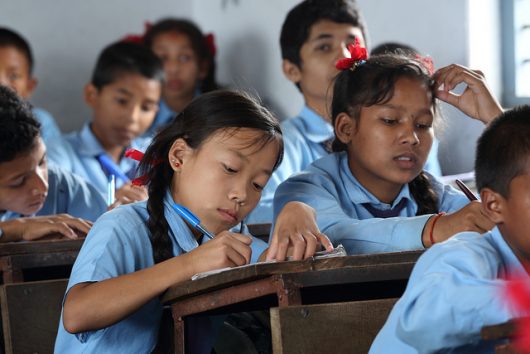LDCs and the Reasons Why Foreign Aid Is So Important

Foreign aid is very important to many less-developed countries (LDCs) around the globe. It can have a substantial effect on their improvement by providing much-needed programs that provide jobs, healthcare and sustainability to the regions of the globe that need it most. Providing aid to LDCs can also promote positive outcomes for the country giving aid.
Here are 10 reasons why providing foreign aid to LDCs is so important:
- It can be used as humanitarian aid. This form of aid is generally given during times of great distress such as natural disasters until the state can support the disaster relief effort. The European Consensus on Humanitarian Aid categorizes humanitarian aid as a “…needs-based emergency response aimed at preserving life, preventing and alleviating human suffering, and maintaining human dignity wherever the need arises if governments and local actors are overwhelmed, unable, or unwilling to act.”
- It can help LDCs fight against diseases such as HIV/AIDS. HIV and AIDS are still a major threat in countries such as Africa and require support from other countries willing to help with the crisis. Organizations and governments around the globe, such as UNITAID and PEPFAR, provide aid to help fight HIV/AIDS in LDCs. A new plan submitted by UNAIDS projects the end of the HIV epidemic as a public health threat by 2030. The new plan would need $26.2 billion by 2020 and an additional $22.3 billion by 2030 to eliminate the disease.
- It helps with economic growth in LDCs. Aid is generally given in countries that are characterized as low income or that have high unemployment rates. This results in low savings and investments, meaning the capital stock is small. Countries that are provided aid need rapid economic development. Providing aid stimulates the growth of the world economy along with promoting economic development within the region.
- It can help with market expansion. Providing aid to a country could mean the expansion of goods and resources that can be shared between the two countries. This can attract new investors into the country further improving the LDCs economy.
- It helps with basic infrastructure in LDCs. Another key component to promoting a strong economy is the expansion of a well-developed infrastructure. Basic necessities such as transport, communication, power, education, health services and industry serve as key components to building a strong and long-lasting infrastructure.
- It helps promote improvements in agriculture. Aid can be used to teach farmers how to utilize their land and resources more efficiently to produce more crops. This, in turn, provides vitamin and nutrient giving foods to people living in LDCs.
- It can help with poverty relief. In 2013, 767 million people (10.7 percent of the world population) lived on less than $1.90 a day, well below the world poverty line. This is a drastic improvement from the 1.85 billion in 1990 and the number has gotten significantly better over the years. However, there is still much to do. Many of the global poor live in rural areas where they do not have access to adequate medical treatment and education.
- It helps LDCs grow and become more independent. By providing aid to promote health, education, and infrastructure, LDCs can focus more on growing their economies. By reducing the amount of disease and poverty, citizens of these regions will be able to flourish and contribute to the growth of the country.
- It promotes political ties. Aid can be used to establish and strengthen the connection between the donor and recipient countries. Aid is given to both LDCs and developed countries alike to promote solidarity and companionship.
- It makes the world safer. Providing LDCs with aid and development reduces the threat of terrorist organizations by alleviating poverty in susceptible countries. A study provided by the RAND Corporation concluded that development is a more effective strategy against terrorism than military force.
Providing foreign aid is, first and foremost, a humanitarian gesture. The aid’s ultimate goal is to support or stabilize an LDC until it is capable of supporting itself. When aid is provided, there are benefits for all participating nations involved way. In most developed nations, foreign aid is still an important part of the legislation and the conversation.
– Drew Hazzard
Photo: Flickr
